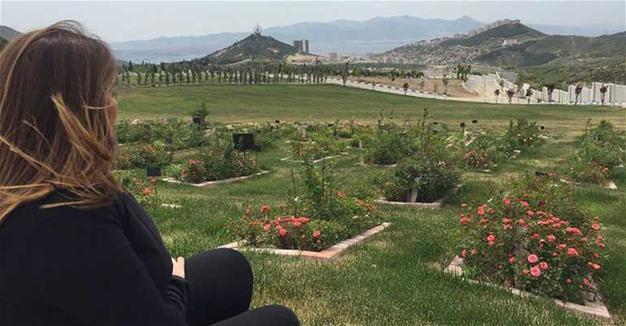‘Cemetery of the nameless’ established in Turkey’s west for Syrians who died en route to Greece
Banu Şen – İZMİR
 A “cemetery of the nameless” has been established near the coast in the western Turkish province of İzmir for Syrians who died while trying to cross over to Greece.
A “cemetery of the nameless” has been established near the coast in the western Turkish province of İzmir for Syrians who died while trying to cross over to Greece. The newly founded Doğançay Cemetery hosts dozens of graves bearing numbers rather than names, with an imam praying for the unidentified bodies during their burial.
Imams and officials take care of the graves, which house Syrian refugees who tried to reach Europe and whose relatives cannot be found.
The number of Syrian refugees buried in the cemetery, administered by the İzmir Municipality’s Cemeteries Directorate, reached 187 with the burial of 12 people who died in the disaster off the Kuşadası district of the western province of Aydın on March 24.
The identities and families of several of those killed in 2017’s first disaster were determined, but the families asked for them to be buried in the Doğançay Cemetery due to their inability to transfer the bodies home to Syria amid the ongoing war.
“It’s very hard to bear it. The children especially make us sad. It’s painful for them to be buried under soil alone in a place they don’t even know, when in fact they should be playing in their homes’ gardens and should be with their friends,” imam Hüseyin Akgül told daily Hürriyet.
He added that a family of six - Hamide, Suzan, Azime, Cano, Peyman and Fatma Şeho - had lost their lives in the recent disaster off Kuşadası.
“They have no one here. We are the only community. We think they are entrusted to us. That’s why we are showing them more attention. The İzmir Municipality covered this area with grass a short while ago and all of the graveyards were decorated with flowers. It’s impossible for a person not to feel sad here. DNA samples are taken from the bodies and if their relatives are found in the following days they will be able to receive their bodies. Of course, our biggest prayer is for wars and evils like this to stop,” Akgül also said.
Some 15 refugees were buried in the cemetery in 2014, rising to 62 in 2015. A drastic increase was then seen in the first two months of 2016, when 59 refugees were buried in the cemetery.
The dead bodies of the refugees are kept in a morgue for 15 days after the autopsy. If no one claims the dead body, then it is sent to the Doğançay Cemetery after the DNA sample and a photograph is taken.
















